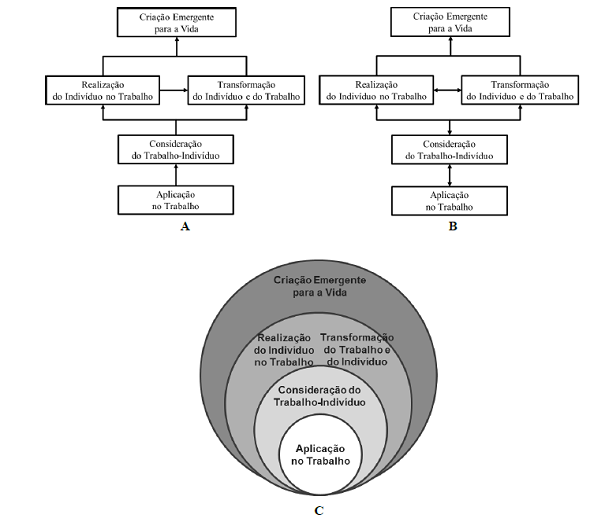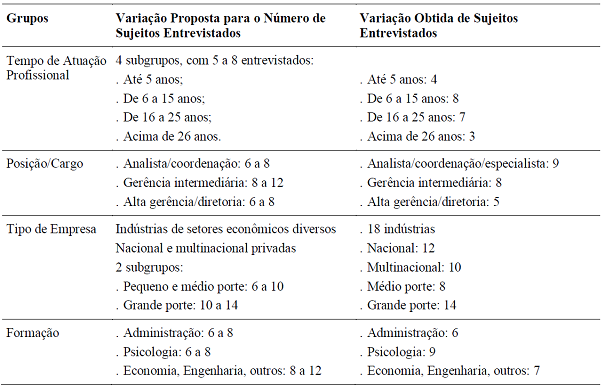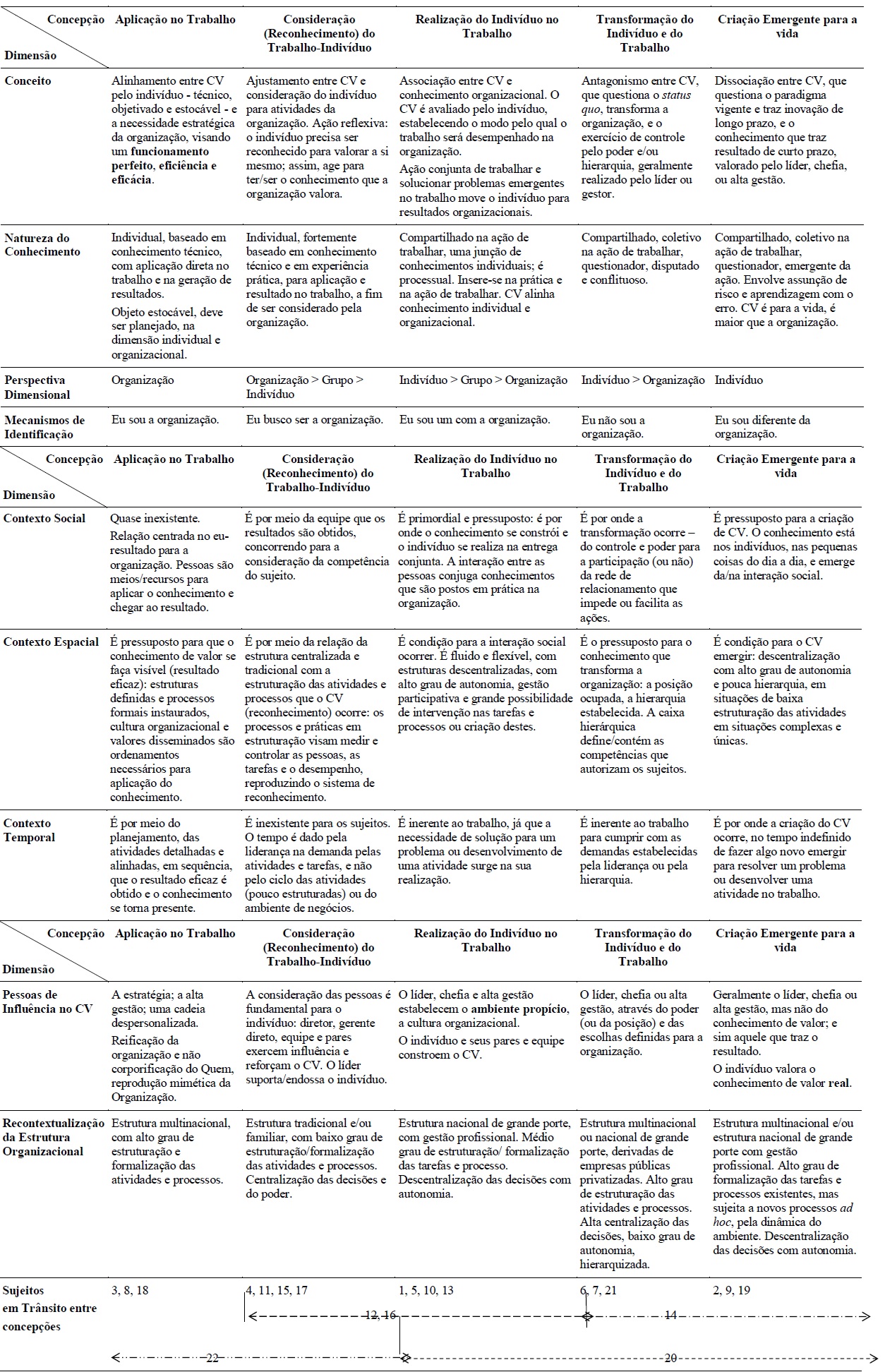Abstract
Phenomenography is a little-known qualitative research methodology in organizational studies. It aims to capture the various conceptions individuals have about a phenomenon, that is, the different qualitative ways to experience and conceive of it (Marton, 1981; Marton & Booth, 1997; Sandberg, 2000). This theoretical paper aimed to shed light on the research experience using the method, explaining unexpected emergent findings not reported in the literature, via an empirical study with HR professionals on valuing knowledge in the context of work. The research revealed five conceptions, which were arranged in a logical, hierarchical, comprehensive, and interdependent manner, as stated by the method. Then, a focus group (Goldman & McDonald, 1987) with prototypical and representative participants of the categories was held in order to validate the descriptive categories and enhance understanding of the unexpected emergent findings. The serendipitous findings unveiled: (a) the capacity of phenomenography to capture subjects' two-way movement across conceptions in experiencing the phenomenon; (b) the uninterrupted continuum between the conceptions; and (c) the dynamic trajectory of individuals through conceptions in time and space, using them as modes of action to guide their behavior in relation to diverse contexts.
Key words:
phenomenographic method; research methodology; group interview; organizational studies

 Thumbnail
Thumbnail


